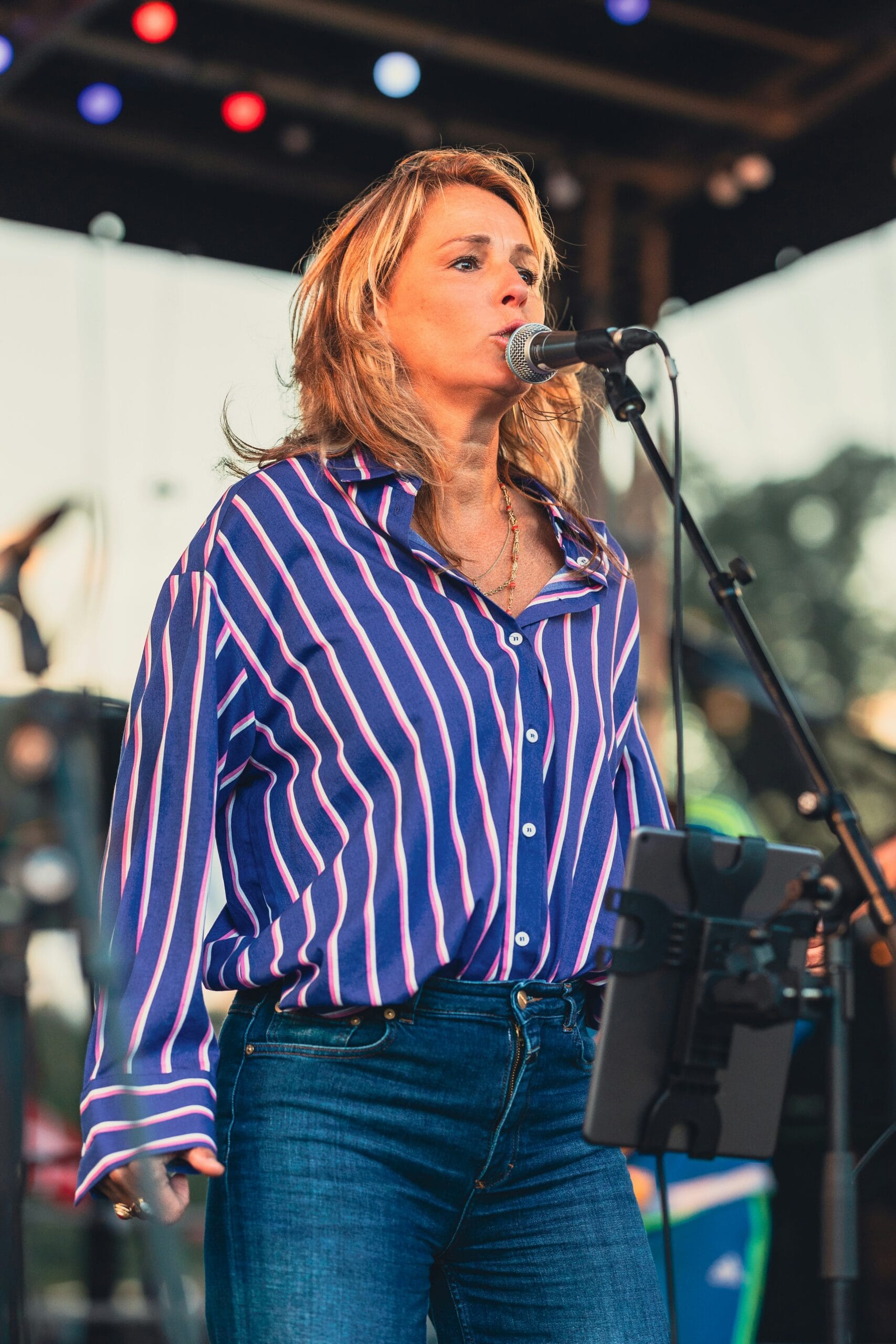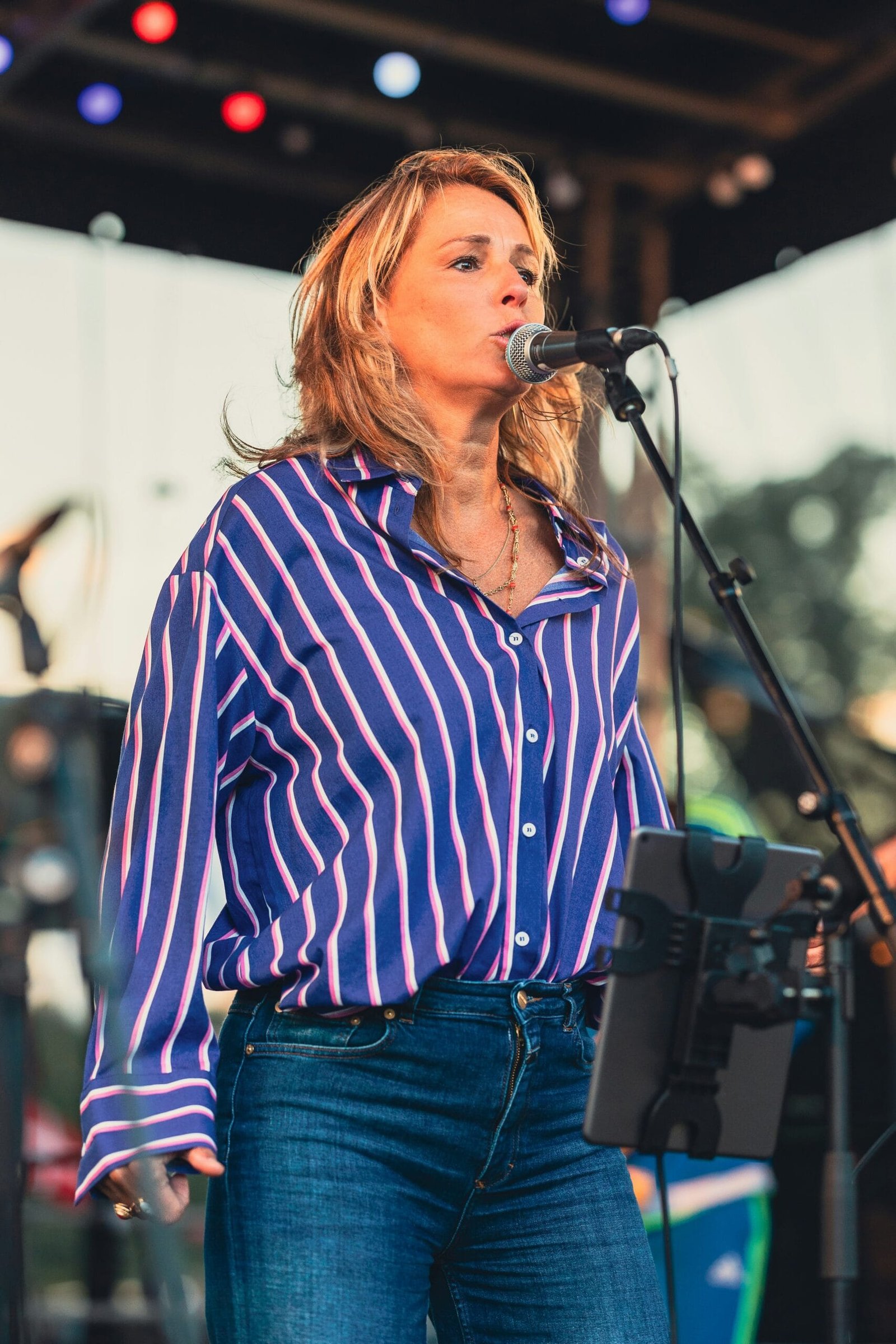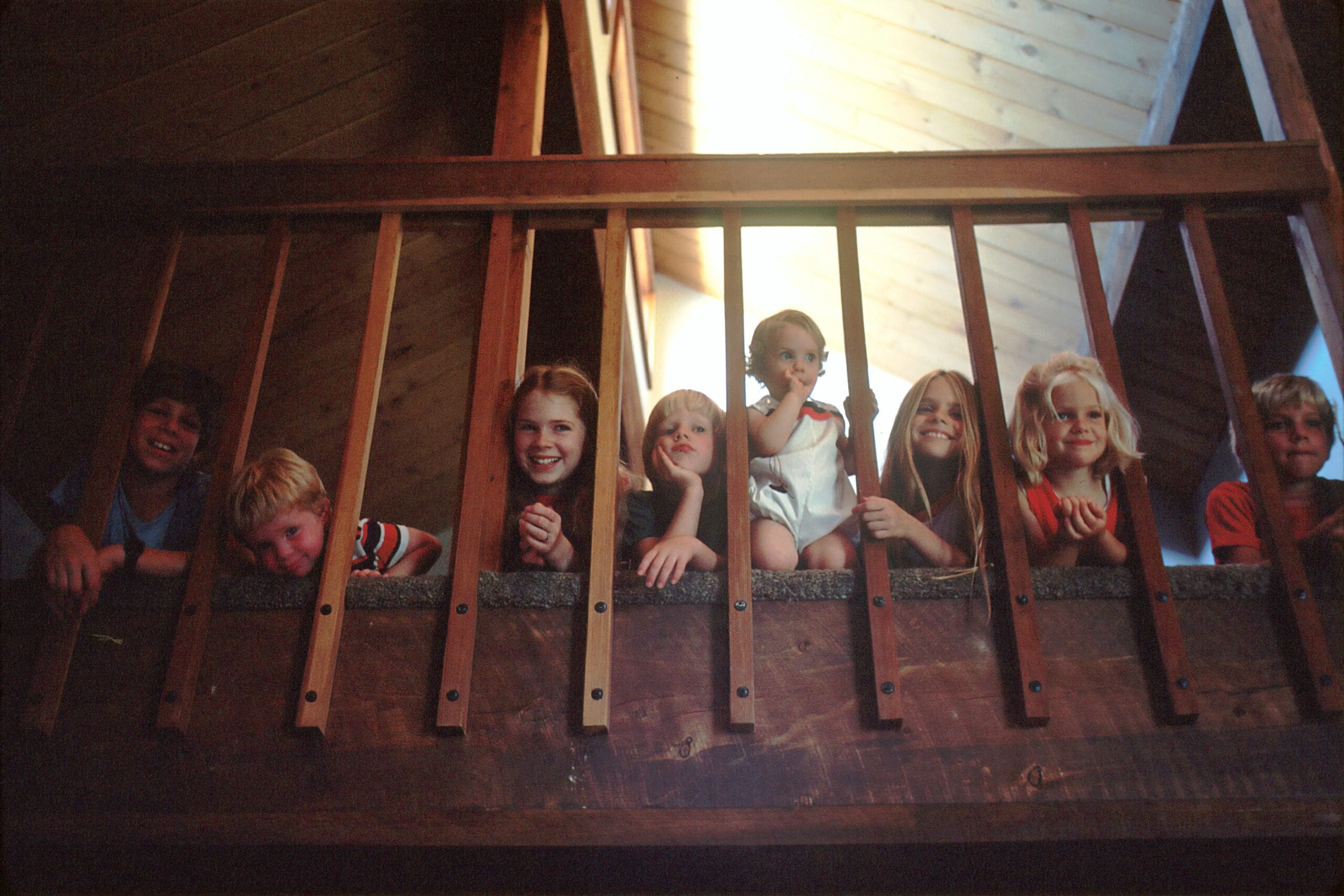
Photo by <a href="https://unsplash.com/@driftinghorizon" rel="nofollow">Peyman Shojaei</a> on <a href="https://unsplash.com/?utm_source=hostinger&utm_medium=referral" rel="nofollow">Unsplash</a>
Introduction to Personal Identity and Musical Expression
Personal identity is a fundamental aspect of human existence, encompassing the various dimensions that contribute to one’s sense of self. This identity is not static; rather, it evolves over time, influenced by personal experiences, cultural background, and social interactions. One of the most powerful means of expressing this identity is through music. As a form of art that transcends language and cultural barriers, music has the unique ability to articulate emotions, beliefs, and experiences that may be difficult to convey through words alone. For individuals, engaging with music can serve as a vital outlet for personal expression and a means to connect with their heritage and community.
Across different cultures, musical traditions have played an essential role in shaping and expressing personal and collective identities. Music not only reflects societal norms and values, but it also allows individuals to assert their unique positions within those frameworks. Composers, musicians, and singers often draw upon their cultural influences when creating and performing music, crafting pieces that resonate with their own life experiences. This phenomenon highlights the connection between personal identity and musical expression, demonstrating how one’s background can inform artistic choices and stylistic preferences. Moreover, music can facilitate self-discovery, allowing individuals to explore a range of emotions while fostering deeper connections with their own identities.
More informationMusical Freedom: The Mormon Tabernacle Choir’s Cultural ImpactThe Mormon Tabernacle Choir, with its rich history and diverse repertoire, serves as a prime example of how music can encapsulate personal and cultural identity. As we delve further into the role of this esteemed choir, we will examine the ways it embodies and fosters individual creativity while simultaneously reflecting a shared cultural heritage. Understanding the relationship between personal identity and musical expression through this lens offers valuable insights into the transformative power of music in the lives of individuals and communities alike.
Overview of the Mormon Tabernacle Choir
The Mormon Tabernacle Choir, officially known as the Tabernacle Choir at Temple Square, has a rich history that dates back to its establishment in 1847. Founded by early members of The Church of Jesus Christ of Latter-day Saints, the choir originally aimed to provide music for congregational worship and church meetings. Over the years, it has evolved into a world-renowned ensemble recognized for its choral excellence and unique contributions to the broader musical landscape. The choir’s mission emphasizes not only the performance of sacred music but also the use of music as a means of proclaiming faith and fostering community.
One of the significant cultural contributions of the Mormon Tabernacle Choir is its ability to bring together individuals from diverse backgrounds to create a unified sound that embodies the spirit of the Latter-day Saint community. This gathering of voices serves as a powerful reflection of shared beliefs and values, which in turn shapes cultural identity. Through its performances, the choir has successfully bridged the gap between sacred and secular music, showcasing how the arts can articulate both personal and collective narratives.
More informationSound and Sovereignty: Musical Expression as Personal LibertyThe Choir’s extensive repertoire includes gospel, classical, folk, and contemporary music, reflecting its commitment to inclusivity. This diversity not only appeals to a broad audience but also underlines the cultural significance of the choir as a musical ambassador. The choir’s participation in large-scale events, including National Memorial Services and collaborations with leading orchestras, demonstrates its prominent role in public life. By sharing its music through live broadcasts and recordings, the Mormon Tabernacle Choir continues to impact cultural expressions and individual creativity, making it an integral part of both the Latter-day Saint community and the greater music world.
Cultural Identity: A Foundation for Musical Expression
Cultural identity serves as a fundamental cornerstone for individual expression, particularly in the realm of music. It encompasses the shared values, traditions, languages, and artistic expressions of a community, shaping how individuals perceive themselves and their relation to the world. This intricate framework influences not only the creation of music but also how it is experienced and received by listeners. In this context, the Mormon Tabernacle Choir stands as a prominent example of how cultural identity can be articulated through musical performance.
The choir’s extensive repertoire includes a diverse range of genres, from classical compositions to contemporary gospel, reflecting the varied traditions of its members and the communities it represents. This selection is not merely for entertainment; it acts as a vehicle for cultural representation, allowing the choir to honor the historical narratives and spiritual beliefs inherent in Mormon culture and beyond. Through its music, the choir facilitates a collective experience that resonates with both the individual and the communal aspects of cultural identity.
More informationThe Entrepreneurial Spirit Behind Musical Performance: Insights from the Mormon Tabernacle ChoirMoreover, the performance of music by the Mormon Tabernacle Choir exemplifies the significance of cultural practices in personal expression. Each member brings their unique heritage and story to the choir, enriching the overall sound and experience. This synergy highlights how various cultural elements—such as harmony, rhythm, and lyrical themes—can interact to create a profound form of expression that transcends individual backgrounds. As a result, the choir contributes to a broader understanding of how music serves as an essential medium for individuals to navigate and articulate their cultural identities.
Ultimately, cultural identity and musical expression are deeply interconnected. The Mormon Tabernacle Choir’s approach to music epitomizes this connection, showcasing how shared cultural experiences can inspire individual creativity while simultaneously preserving and promoting the values of the broader community.
The Role of Music in Shaping Individual Creativity
Music plays a pivotal role in shaping individual creativity, serving as not only an emotional outlet but also a means of self-expression. It allows individuals to delve into their psychological and emotional landscapes, facilitating a deeper understanding of themselves and their surroundings. Through music-making, individuals can articulate their unique perspectives and experiences, which can often be difficult to convey through words alone. The profound connection between music and emotional expression brings forth a wide range of feelings, enabling individuals to cultivate their artistic voices.
More informationThe Economics of Musical Performance: Insights from the Mormon Tabernacle ChoirThe Mormon Tabernacle Choir, with its rich history and diverse members, serves as an exemplary platform for individual creativity. Each member is encouraged to bring their own artistic interpretation to the collective sound, allowing for a blend of personal expression within a unified framework. This dynamic is essential, as it fosters a community in which individual identities flourish. By participating in such a renowned choir, members find themselves in an environment that not only values artistic diversity but also nurtures it through collaboration and shared goals.
Participating in choral music, particularly in well-established ensembles like the Mormon Tabernacle Choir, offers members the chance to refine their craft and explore new creative dimensions. The process of rehearsing and performing can be transformative, as singers learn to navigate the delicate balance between individuality and collective identity. Moreover, the experience of sharing music on grand stages further solidifies their artistic journeys, enhancing their confidence and encouraging personal growth.
Ultimately, the role of music in shaping individual creativity cannot be overstated. As members of the Mormon Tabernacle Choir engage in the intricate tapestry of sound, they not only contribute to a powerful communal experience but also unlock new avenues of self-expression. Through this journey, they are able to embrace their unique artistic voices while being part of a larger cultural identity.
More informationTechnology and Musical Innovation: The Evolution of the Mormon Tabernacle ChoirConnecting Communities Through Music
The Mormon Tabernacle Choir has long been recognized not only for its musical artistry but also for its significant role in connecting communities through music. This esteemed choir engages in various outreach efforts, aiming to foster a sense of belonging and unity among diverse audiences. By performing at a variety of venues, the Choir expands its reach beyond traditional concert settings, bringing the uplifting power of music to different cultural backgrounds and demographics.
One of the key aspects of the Choir’s community efforts is its collaboration with local artists and organizations. Through initiatives such as joint performances and music festivals, the Choir builds relationships with other musicians and cultural groups, celebrating the rich tapestry of human experience. These partnerships create opportunities for cross-cultural exchanges, allowing individuals from varying backgrounds to share their stories through music. The collaborative spirit evident in the Choir’s performances not only enriches the musical experience but also fosters a deeper appreciation for different cultural expressions.
In addition to formal performances, the Choir actively participates in outreach programs aimed at underrepresented communities. Through workshops and community events, members of the Choir engage directly with local residents, encouraging creativity and participation in musical activities. These outreach efforts help individuals feel more connected to one another while highlighting the importance of inclusion in artistic endeavors. By providing platforms for emerging artists, the Choir helps to promote a diverse range of voices and perspectives within the larger framework of musical expression.
More informationCultural Diplomacy Through Musical Performance: The Role of the Mormon Tabernacle Choir in International RelationsUltimately, the Mormon Tabernacle Choir embodies the belief that music has the power to transcend barriers and build bridges between people. By fostering connections through their musical performances and outreach efforts, the Choir not only strengthens cultural ties but also promotes a more inclusive society where creativity and individuality can flourish.
Personal Experiences of Choir Members
The Mormon Tabernacle Choir, renowned for its rich musical heritage, serves as a profound influence on the lives of its members, shaping their personal identities and fostering a deep sense of community. Current and former choir members often recount their journeys, detailing how their participation has transformed not only their musical skills but also their self-perception and creative expression.
For many, joining the Choir acts as a pivotal moment, marking the beginning of a transformative experience. One member shared that the moment they first stood on the stage, surrounded by the harmonies of fellow singers, they felt a profound connection to something greater than themselves. This experience instilled a sense of belonging that transcended individual differences and united them in a shared purpose. The supportive environment cultivated within the Choir encourages personal exploration, allowing members to express their creativity while navigating their unique identities.
More informationThe Power of Voluntary Association and Musical Collaboration: Lessons from the Mormon Tabernacle ChoirAnother choir member reflected on how their participation enhanced their musical talents, which in turn influenced their personal artistry beyond the Choir. Engaging with diverse musical repertoires exposed them to various cultural expressions, thereby enriching their understanding of music as a universal language. This exposure has inspired many singers to incorporate elements from their choir experience into personal projects, blending traditional expressions with modern creativity.
Furthermore, testimonials reveal that the friendships forged within the Choir play an instrumental role in shaping members’ identities. Bonds created through shared rehearsals, performances, and challenges provide a support network that reinforces individual and collective identities. Over time, this camaraderie fosters a deeper appreciation for diverse perspectives, allowing members to grow not just as artists but as individuals in a vibrant community. These personal testimonies highlight the profound interconnectedness between musical expression, personal identity, and belonging within the Mormon Tabernacle Choir.
The Intersection of Tradition and Innovation
The Mormon Tabernacle Choir, renowned for its rich history and tradition, has successfully navigated the delicate balance between preserving its historical roots and embracing innovative musical practices. This unique intersection of tradition and innovation is crucial in shaping personal and cultural identity, both for the choir members and its audiences. The organization is steeped in over a century of musical legacy, providing a strong foundation of classical and religious music that resonates deeply within the community it serves.
More informationMusic as a Platform for Individual StorytellingHowever, as musical landscapes continually evolve, the Choir faces the challenge of adapting to contemporary styles while honoring its traditional repertoire. This dynamic reflects a broader cultural trend, where artistic expressions frequently engage with historical contexts, articulating the complexity of individual and collective identities. The Choir has been proactive in incorporating diverse musical genres, such as popular, folk, and global music, thereby captivating new audiences and enhancing the richness of its performances.
One substantial benefit of this approach is the engagement of a younger demographic who may not initially connect with traditional choral music. By integrating innovative elements, the Choir fosters an inclusive cultural space, allowing individuals from various backgrounds to find personal resonance within its performances. This strategy not only revitalizes the Choir’s artistic output but also creates opportunities for individual creativity among its members, allowing them to explore new expressions of their musical talents within the framework of the choir.
Ultimately, the interplay between tradition and innovation within the Mormon Tabernacle Choir exemplifies the complexities of cultural identity in a modern context. By respecting its roots while promoting artistic growth, the Choir serves as a vital platform for personal expression and communal connection, reinforcing the importance of both individuality and collective heritage in today’s society.
More informationHarmony and Individual Choice: Musical Narratives of FreedomThe Impact of Technology on Musical Expression
In recent years, technology has profoundly influenced musical expression, enabling artists to connect and engage with a wider audience than ever before. The Mormon Tabernacle Choir, renowned for its rich heritage and distinctive sound, has leveraged technological advancements to enhance its outreach and engagement efforts. By embracing various digital platforms, the choir embodies the integration of tradition with modernity, which is essential for preserving and promoting cultural identity.
One of the most significant advancements in recent times has been the rise of streaming services. The Mormon Tabernacle Choir has expanded its audience reach through platforms such as YouTube and social media, allowing individuals from diverse backgrounds to experience its performances irrespective of their geographical location. This not only enhances accessibility but also facilitates a greater understanding and appreciation of the choir’s artistic expression and the cultural narratives it represents.
Moreover, the use of digital technology enables the choir to produce high-quality recordings and broadcasts, further meeting the demands of contemporary listeners. High-definition video productions, coupled with state-of-the-art sound engineering, ensure that audiences can fully immerse themselves in the musical experience. This dedication to quality showcases not only the choir’s commitment to artistic excellence but also its desire to convey authentic cultural narratives in a compelling manner.
More informationReligious Liberty: Mormon Perspectives on Individual FreedomAdditionally, technology fosters community interaction and engagement. Online platforms allow fans to share their experiences, participate in discussions, and connect through shared musical interests. Thus, technology acts as a bridge between traditional musical practices and modern expressions, allowing for a dynamic exchange of ideas related to personal and communal identity.
The Mormon Tabernacle Choir’s novel use of technology exemplifies how digital tools can enhance musical expression and accessibility, ultimately enriching the cultural identity associated with their performances. The synergy between traditional elements and contemporary technology suggests a promising future for artistic expression in the digital age.
Conclusion: The Legacy of the Mormon Tabernacle Choir
The Mormon Tabernacle Choir has played an instrumental role in shaping both cultural identity and individual creativity through its rich musical heritage. With an expansive repertoire that spans various genres and styles, the Choir has become a bastion of musical expression, resonating with audiences across cultural backgrounds. By incorporating traditional hymns, classical pieces, and contemporary compositions, the Choir not only preserves musical history but also fosters a sense of belonging and personal identity among its members and listeners alike.
The profound connection between personal identity and musical expression is evident in the way the Choir engages with its community. As choir members participate in performances, they find a platform to express their beliefs and emotions, strengthening their individual sense of self. This interaction underlines the transformative power of music as a form of self-expression, bridging gaps between diverse cultural narratives. Additionally, the Choir serves as a cultural ambassador, promoting the values and traditions of the Latter-day Saint community while inviting collaboration and appreciation from broader audiences.
The enduring legacy of the Mormon Tabernacle Choir extends beyond musical performance; it significantly enriches local and global communities by inspiring creativity and cultural dialogue. Its performances often transcend mere entertainment, becoming transformative experiences that nurture the collective identity of both members and audiences. Through concerts, broadcasts, and community engagements, the Choir continues to uplift, educate, and connect people through the universal language of music. The impact of the Choir is felt not only in the hearts of its members but also in the communities it touches, making its legacy a vital chapter in the ongoing narrative of cultural identity and creative expression.







